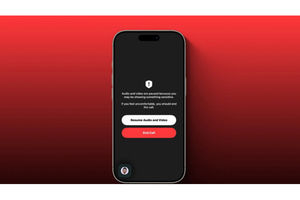Are you leaving money on the table?

What you need to know:
- Unlike corporations, solopreneurs don’t have departments. You are marketing, operations, finance, and customer care all at once. That makes you vulnerable to the hidden inefficiencies and missed opportunities that slowly drain your potential income.
There’s a shift happening among many graduates in the nation who are creating their own jobs. It’s the rise of the solopreneur. While the transition from student to business owner sounds empowering, the reality is your lecturer and professors did not equip you for this era (unless you studied business).
You might have left college with a degree in engineering or web design but find yourself Googling “how to price my services” in the middle of the night. And you are not alone. I’ve been there; in fact, I’ve got a degree in the school of solopreneurship, majored in “Invoice Not Paid 101,” minored in “Negotiating prices in my DMs at 11pm,” and somehow squeezed in a thesis on “Why boundaries matter even when you need the money.”
This article is for the solopreneurs living that reality, navigating the blurred lines of business, purpose, and hustle. Let's explore if you’re leaving money on the table and, more importantly, how to stop.
I know of a freelance graphic designer who missed out on a juicy retainer. She figured it was just ‘bahati mbaya,’ but when I was interested in doing business with her, I discovered she was brilliant at the craft but completely winging the business side. No clear process. No follow-up. No structure. And that’s what cost her, not the quality of her work, but the absence of a system to back it up.
Across the nation, solopreneurs are unintentionally leaving money on the table every day. The causes are silent, persistent, and deeply embedded in how you conduct business as one-person enterprises. Unlike corporations, solopreneurs don’t have departments. You are marketing, operations, finance, and customer care all at once. That makes you vulnerable to what I call “silent leaks”, the hidden inefficiencies and missed opportunities that slowly drain your potential income.
These typically fall into three categories: underpricing your services, poor client onboarding and lack of formal systems or boundaries. Life in Dar moves fast, and if you’re not careful, your money will move faster but away from you.To address this, I propose the L.E.A.P. framework, a four-step method designed specifically for solopreneurs to recognise and resolve hidden inefficiencies.
L – List your processes. Write down how you get clients, onboard them, do the work, and close the job. Be honest. Where are the delays? Where do you feel uncertain? Example: Do you send a welcome email or briefing doc after someone expresses interest? If not, that’s your first leak.
E – Evaluate your pricing logic. Ask: is your pricing cost-based, value-based, or random? Build a pricing model that reflects your experience, not just your expenses. For example: A social media manager might double her rates after realising her clients were gaining 5x ROI on her work. She doesn't lose clients; she retains the right ones and gains respect.
A – Automate or template key steps. Create templates for proposals, invoices, and follow-up emails. Use free or low-cost tools. My personal favourite is Canva, but you can explore Zoho, Notion or WhatsApp Business to streamline communication. When I was a full-time solopreneur, I managed to save up to 5 hours a week just by templating client onboarding responses beforehand.
P – Protect your time and terms. Set CLEAR boundaries, working hours, revision limits and payment terms. Set expectations early and repeat them often. I state my business hours clearly and insist on a starter fee (anywhere between 30% and 50%, depending on the scope).
At the end of the day, Dar es Salaam will humble you with traffic that doesn’t respect your schedule, heat that melts your ambition by 1pm, and vibe chasers who want premium work for free. In fact, if we are honest, that energy isn’t just in Dar; it’s nationwide.
But don’t let that discourage you. Let this article and the L.E.A.P. Framework be your reminder that you’re not here to hustle endlessly and hope for the best. You’re here to build smart. To plug the leaks, set the tone, and operate like the ‘CEO of One’ that you are. When you operate with structured systems, gratuity fees become the cherry on top and not the main course.
- I’m rooting for you!
For enquiries and suggestions contact: [email protected]





